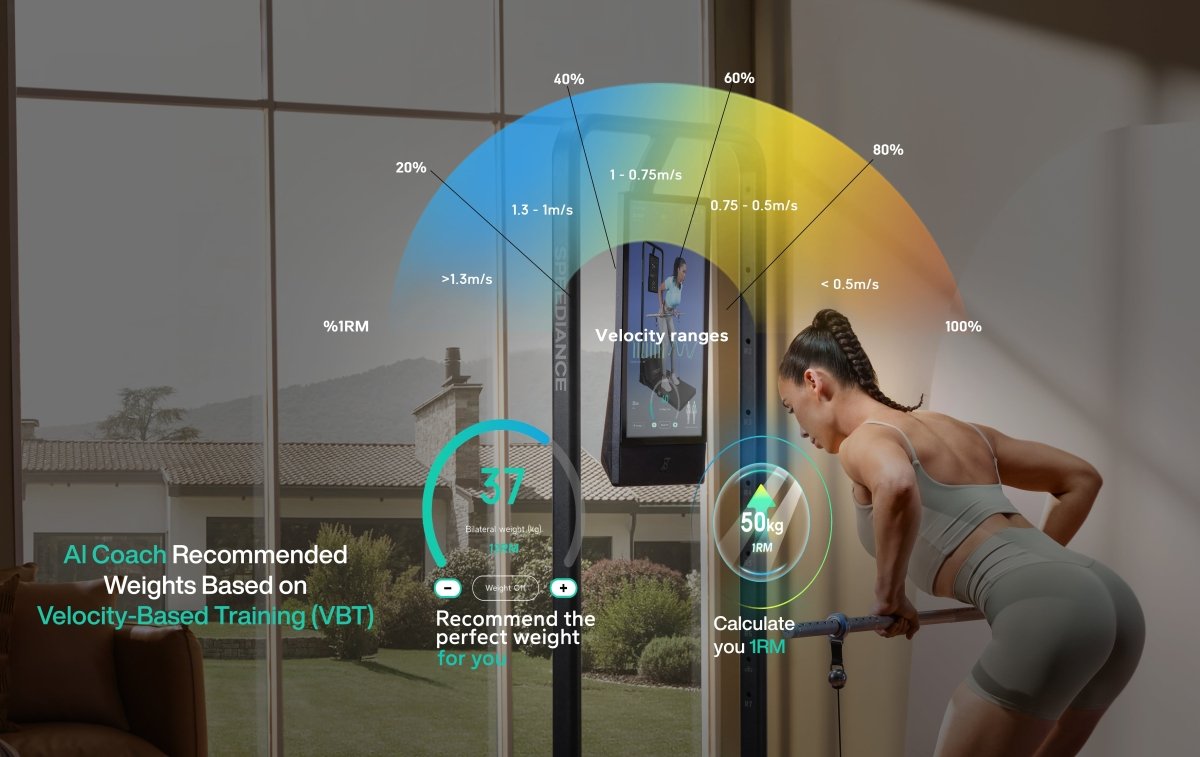Building muscle or improving endurance requires more than just intense workouts and proper nutrition—it demands quality sleep. Sleep is the foundation of effective muscle recovery, enabling your body to repair and strengthen after rigorous training sessions. When paired with Speediance Smart Gym equipment, adopting optimal sleep habits can amplify your results and help you recover faster.
This article dives into the critical connection between sleep and muscle recovery, offering actionable tips to enhance your rest and maximise the benefits of Speediance training. Additionally, tools such as the Rowing Bench or the Squat Belt can support your recovery and overall fitness regimen.
Understanding Muscle Recovery
Every workout stresses your muscles, causing tiny tears in muscle fibres that require repair. This repair process is crucial for muscle growth and improved performance but hinges on adequate recovery periods. Without sufficient rest, you risk injuries and slower progress.
Why Sleep is Key to Recovery
Recovery isn’t just about taking breaks from workouts; it’s about ensuring your body gets enough rest to rebuild and strengthen. Sleep plays a pivotal role in this process, complementing the benefits of Speediance Smart Gym training by providing the necessary downtime for your muscles to recover and grow stronger.
How Sleep Aids Muscle Recovery
Hormonal Regulation
During deep sleep, your body releases growth hormones, essential for muscle repair and growth. This is especially important after high-intensity workouts using Speediance equipment, where muscle stress peaks. Insufficient sleep reduces growth hormone production, hampering recovery and performance.
Protein Synthesis
Protein synthesis—the process of repairing muscle fibres—occurs during rest, particularly sleep. Without enough sleep, this critical process slows down, delaying recovery and muscle development.
Reducing Inflammation
Intense workouts can lead to inflammation and soreness. Sleep helps your body manage inflammation, minimising discomfort and enhancing recovery. After challenging Speediance sessions, proper rest accelerates the healing process.
Deep Restorative Processes
Sleep allows your body to focus on tissue repair, stress reduction, and nervous system recovery. These functions are crucial for preparing your body for subsequent workouts, ensuring you maintain consistent progress.
Sleep’s Impact on Speediance Training Performance
Boosting Workout Quality
A well-rested body performs better. Sleep deprivation affects focus, reaction times, and energy levels, making it harder to complete challenging sessions with the Speediance Smart Gym. Conversely, quality sleep enhances your ability to stay motivated and maximise your efforts.
Improving Recovery for Future Workouts
Proper sleep ensures your body recovers fully between sessions, reducing fatigue and preparing your muscles for the next challenge. This is particularly vital when engaging in high-intensity Speediance exercises that demand peak physical performance.
Optimising Sleep for Muscle Recovery
Creating the Ideal Sleep Environment
-
Dark and Quiet Room: Minimise light and noise distractions.
-
Cool Temperature: Maintain a comfortable, cool setting to support deep sleep.
-
Comfortable Bedding: Invest in a supportive mattress and pillows.
Establishing a Sleep Routine
Consistency is key. Aim to wake up and go to bed at the same time daily, even on weekends. This helps regulate your body’s internal clock for more restorative sleep.
Managing Stress Before Sleep
Relaxation techniques like meditation or light stretching can reduce pre-sleep stress. Incorporating gentle movements using the Adjustable Bench can further help ease muscle tension and prepare you for better rest.
Dispelling Sleep Myths
Myth 1: You Can "Catch Up" on Sleep
Trying to make up for lost sleep over the weekend doesn’t fully compensate for sleep deprivation. Consistent nightly rest is essential for sustained recovery.
Myth 2: More Sleep Equals Faster Muscle Growth
While sleep is critical, excessive sleep can disrupt daily rhythms. Aim for 7-9 hours per night for optimal recovery.
Myth 3: Sleep is Less Important Than Nutrition or Exercise
Sleep, nutrition, and exercise are equally vital pillars of recovery. Neglecting one can diminish the effectiveness of the others, slowing your progress.
Practical Tips for Better Sleep
Prioritise Sleep Duration
Strive for 7-9 hours of sleep nightly to support muscle recovery and overall health.
Embrace Short Naps
Brief 20-30 minute naps can rejuvenate you without interfering with nighttime sleep.
Consider Natural Sleep Aids
Supplements like magnesium or melatonin can promote better rest if you struggle with insomnia. Consult a healthcare provider before use.
Conclusion
Quality sleep is the cornerstone of muscle recovery, amplifying the benefits of Speediance Smart Gym training. By prioritising rest and creating optimal sleep habits, you’ll unlock faster recovery, better performance, and steady progress toward your fitness goals.
Enhance your training with Speediance’s innovative tools. Explore the Smart Gym, Rowing Bench, and Storage Rack to support your recovery and optimise your workouts.
Disclaimer: This article is for informational purposes only and should not be considered professional advice. Always consult a fitness or medical professional before making changes to your exercise or sleep routines.


